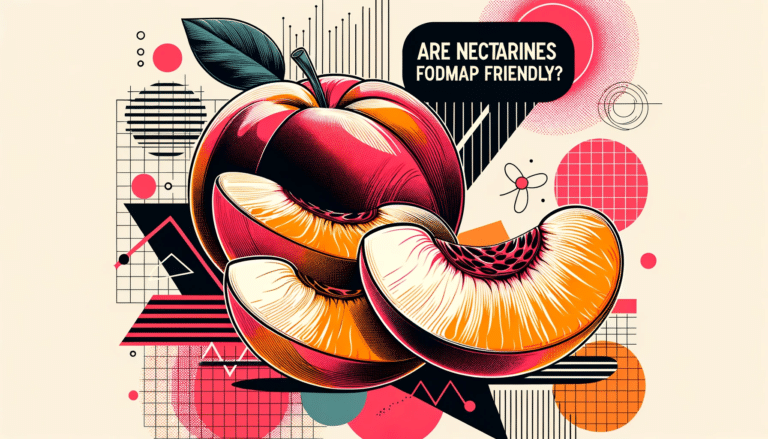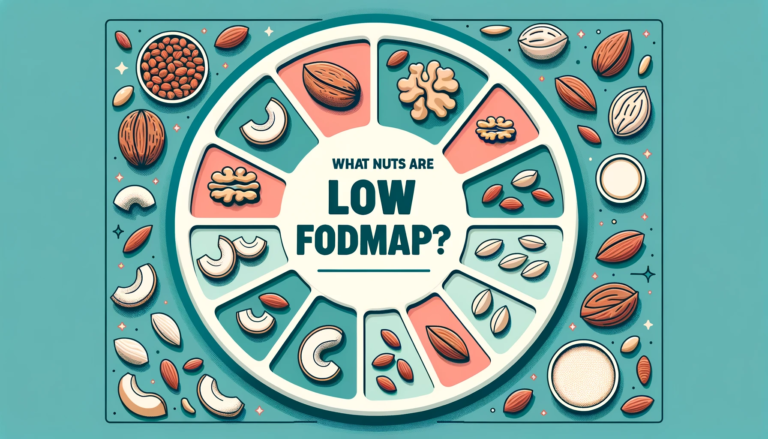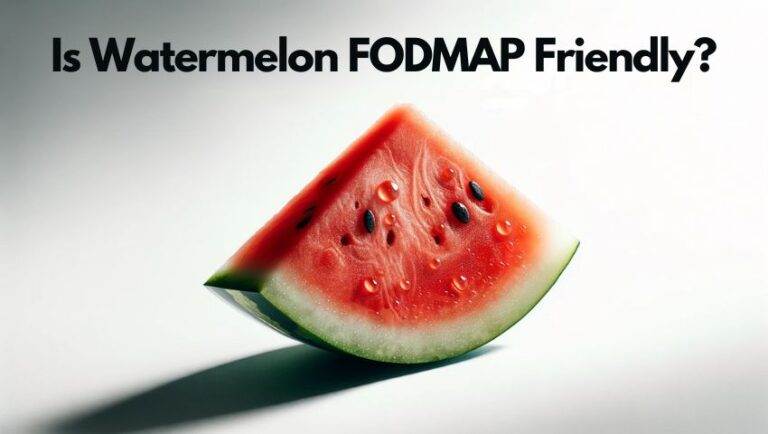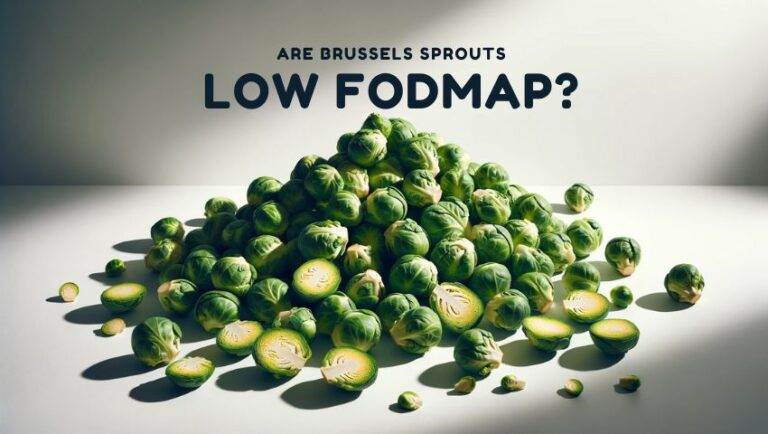Are Gherkins Low FODMAP? – A Tangy Tale of Fermented Delights
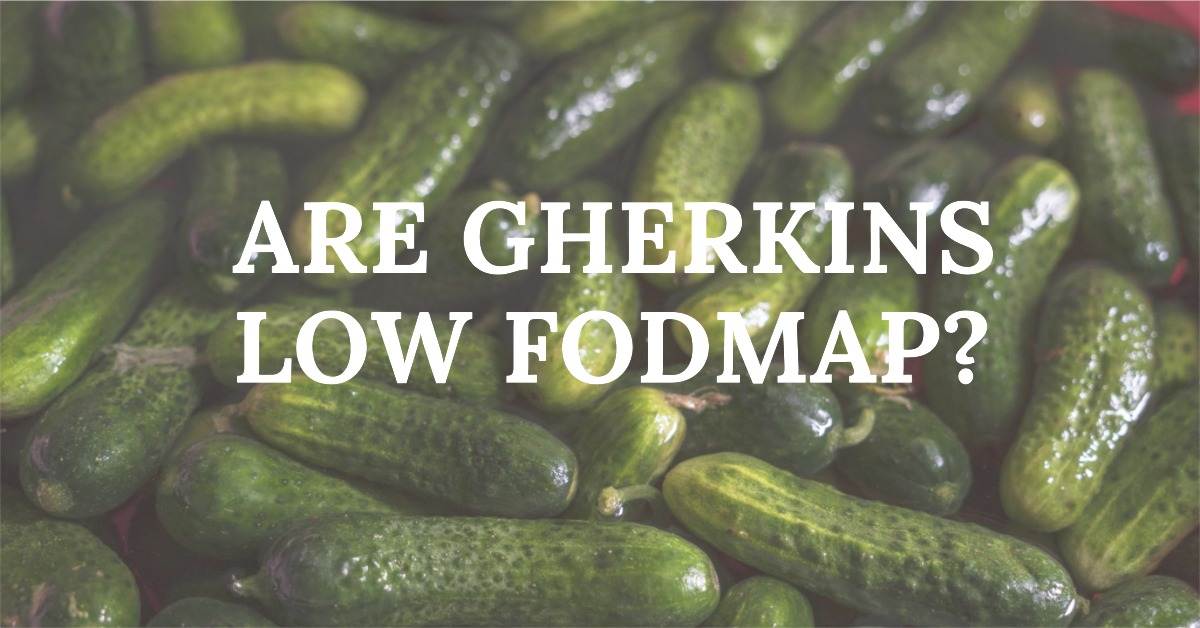
Have you ever been plagued by the great pickle predicament, pondering – are gherkins low FODMAP?
Yes, gherkins can be considered low FODMAP. However, you need to check the ingredients in the pickling solution to ensure they don’t contain high FODMAP ingredients like garlic, onion, or high fructose corn syrup. Always read labels carefully.
Now, if you’re scratching your head wondering what the heck FODMAPs are, they’re a group of sugars that can spell trouble for sensitive stomachs.
A low FODMAP diet helps manage symptoms and is a game-changer for many, including yours truly. But where do gherkins fit into this picture? Let’s find out.
Gherkins: Tiny Powerhouses of Pickled Goodness

So, what exactly are gherkins? Besides being the perfect sidekick to a juicy burger, these mini cucumbers are pickled in vinegar and a medley of spices.
Gherkins are crunchy, flavorful, and let’s be honest, downright addictive.
Their nutritional profile isn’t too shabby either. Gherkins have a low-calorie count with a decent dose of vitamin K and dietary fiber.
However, not all pickles were created equal, especially regarding FODMAPs. You’d be surprised at the things you’ll learn about these tiny treats when you’re trying to keep your gut happy.
Gherkins and the Digestive System
Everyone’s digestive system has its quirks, and mine has a few more than I’d like as someone diagnosed with celiac disease and IBS. Gherkins can be either friend or foe, depending on how they’re prepared.
Pickled cucumbers themselves are low-FODMAP. The problems begin when they’re fermented with high-FODMAP ingredients like garlic and onions, which can trigger symptoms for people like me with IBS (Irritable Bowel Syndrome) – as if celiac disease itself wasn’t enough!
But before you start mourning the loss of your favorite sandwich topper, hold on. There’s more to this story than just a list of ingredients.
How gherkins fit into your diet is a bit of a balancing act, especially when aiming to keep those FODMAPs in check.
Fermentation and FODMAP Levels
Now let’s geek out on fermentation for a sec. Those lovely jars of gherkins on the shelf, they’ve been hanging out in a brine solution that kickstarts the fermentation process.
Fermentation can lower the FODMAP content in foods, which is great news for us pickle lovers.
However, fermentation doesn’t always mean low FODMAP. It’s all about the types of sugars present, the bacteria used, and how long the gherkins do their fermentation dance.
It’s a delicate balance, and getting it right can mean the difference between a day spent symptom-free to a day spent with constipation, diarrhea, or other symptoms associated with FODMAP intolerance.
Incorporating Gherkins into a Low FODMAP Diet
Alright, so you’re probably thinking, “How do I add gherkins into my diet without playing Russian roulette with my stomach?” I hear ya.
Start by choosing gherkins labeled as “low FODMAP” or make your own with a tried-and-true recipe. And remember, moderation is key. This isn’t an all-you-can-eat pickle buffet!
I’ve found that slicing gherkins into thin strips and adding them to sandwiches or salads adds a pop of flavor without going over my FODMAP limit.
Here are a couple of ways to enjoy gherkins without the bellyache:
- Top them on a burger: Just a couple of thin slices will do.
- Stir them into potato salad: A tablespoon of chopped gherkins brings tang and texture.
- Garnish your drinks: A little gherkin on a stick makes any drink a little more playful and a lot more delicious.
Alternative Low FODMAP Options
If gherkins just aren’t sitting right, don’t fret, there are other low FODMAP pickled goodies to discover.
Pickled carrots, green beans, and even certain types of olives can provide that pickle punch without the FODMAP punch to the gut.
Here’s a quick list of pickled delights that can brighten up your meals:
- Pickled carrots
- Pickled radishes (limited quantities)
- Olive mix (watch for garlic and onions)
- Capers (drained and rinsed)
When in doubt, refer to the Monash University FODMAP guidelines for reassurance. They haven’t steered me wrong yet!
Are Gherkins Low FODMAP? – Final Thoughts
So, there you have it, my investigative findings on the gherkin conundrum. While they can be enjoyed in moderation, it’s all about knowing your limits and sizes.
If you’re curious about how I learned all this, let’s just say a few unfortunate gherkin binges led me down the path of FODMAP wisdom.
Remember, your journey with food sensitivities is personal, and what works for one may not work for another.
As my kitchen experiments continue, I’ve learned that a little creativity and a lot of listening to my body can go a long way – and there’s no reason it can’t do the same for you too!
Please note that my advice is based on personal experience as an individual diagnosed with IBS. For personalized dietary recommendations, I’d highly recommend you consult a qualified dietician.
Further Reading
| Article | Description |
|---|---|
| What Fruits are Low FODMAP? | Provides information about which fruits are considered low FODMAP and can be included in a low FODMAP diet. |
| What Nuts are Low FODMAP? | Lists nuts that are low in FODMAPs, which can be helpful for individuals following a low FODMAP diet. |
| Is Honey High FODMAP? | Discusses whether honey is considered high in FODMAPs or not, providing insights for those following a low FODMAP diet. |
| Are Nectarines FODMAP Friendly? | Explores whether nectarines can be considered FODMAP friendly, which can be useful for individuals on a low FODMAP diet. |
| Is Watermelon FODMAP Friendly? | Examines whether watermelon is considered FODMAP friendly or not, providing information for those following a low FODMAP diet. |
| Are Brussels Sprouts Low FODMAP? | Provides information about whether Brussels sprouts are classified as low in FODMAPs, which can be helpful for individuals on a low FODMAP diet. |
| Are Raisins FODMAP Friendly? | Discusses whether raisins are considered FODMAP friendly or not, offering insights for those following a low FODMAP diet. |
Disclaimer: This content is based on my personal experience as an individual diagnosed with celiac disease and IBS (Irritable Bowel Syndrome) who follows a strict gluten-free diet. This does not constitute medical advice. Please consult a medical professional, nutritionist, or qualified dietitian for personalized, professional advice.

